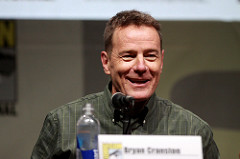Share This Article:
Return to Silver Screen Central Home page


Don Cheadle’s performance is the main reason to see Miles Ahead
C+For the second time in a month, a legendary jazz trumpeter becomes the subject of a biodrama that freely admits to fabricating crucial scenes to give audiences a better understanding of the musician. But, while Born to Be Blue uses fiction to powerfully explain Chet Baker’s heroin addiction, Don Cheadle, the co-writer/director/star of Miles Ahead turns the life of Miles Davis into a bad episode of Starsky & Hutch.
Miles Ahead takes place largely in 1979, when a coked-up and creatively blocked Davis lived in seclusion in New York, unable to finish his latest album. A Rolling Stone reporter, Dave Brill (Ewan McGregor) visits Davis, trying to get an interview, and winds up helping Davis recover session tapes that a sleazy promoter (Michael Stuhlbarg) stole from the musician and hopes to use to finish the album without Davis’ help. During the time spent with Brill, Davis reveals more about himself, as depicted in extensive flashbacks to his earlier career.
Don Cheadle has crafted Miles Ahead as a mosaic, revealing bits and pieces of Davis in a series of largely unrelated scenes going back and forth in time. They show the cruelty in Davis’ life, both what he could inflict on others like his long suffering wife (Emayatzay Corinealdi) and what he suffered as well, such as a scene in which a white cop hassles him right outside the door of the nightclub where the musician was headlining. Dave Bill is a fictitious character, but Davis’ eventual bonding with and confiding in him gives the audience a great look at Davis’ psyche. While the invention of Brill helps flesh out Davis, the equally invented stolen tapes subplot, which takes up nearly half of Miles Ahead, is a huge distraction. Although it’s by far the easiest part of the film to follow, the entire tape scenario, including a shootout involving Davis, Brill, and some of the promoter’s goons, followed by a high-speed chase, is overly melodramatic at best and incredibly silly at worst. Even in those scenes, however, Cheadle is completely captivating and believable as Davis. The audience can see why he would lock himself away for years rather than, in his view, diminish his art. The more ridiculous aspects of Miles Ahead diminish the film’s art as well, but nothing can diminish the excellence of Davis and Cheadle.
Continue reading on Miles Ahead: Mini-review


Recent Comments